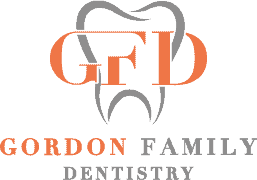When faced with a dental dilemma, how do we choose between root canal and tooth extraction? Understanding the pros and cons of each procedure, as well as the factors to consider before making a decision, is essential for those who wish to provide the best possible care for their patients.
This article will explore the differences between root canal and tooth extraction, as well as provide an overview of the aftercare for each procedure.
What Is a Root Canal
A root canal is a dental procedure designed to preserve a natural tooth that has been damaged by decay or infection. The root canal treatment involves removing the infected pulp, cleaning and shaping the inside of the root canal, and then filling and sealing the space. The root canal procedure is a viable treatment option to save a tooth that would otherwise be extracted. Compared to tooth extraction, a root canal helps maintain the patient’s oral health by preserving their natural tooth and protecting against further complications.
The purpose of a root canal is to eliminate the source of infection and to save the tooth from extraction. It is important to consider the procedure’s long-term effects, as the natural tooth is usually stronger than dental implants. In some cases, tooth extraction may be a better treatment option if the infection is too severe to be treated with a root canal.
Root canals can be used to treat more than just infected teeth. They can also be used to treat teeth that have been damaged by trauma, such as a broken or fractured tooth. Although a root canal can be an effective treatment option, it is important to consult with a dentist to determine the best course of action. A tooth extraction may be necessary to protect the patient’s oral health if a root canal is not an option.
What Is a Tooth Extraction
Removal of a tooth from its socket in the jawbone is an alternative form of treatment for a problem tooth. Tooth extraction can be a viable option, especially when the root canal is not feasible or when the damage to the tooth is too extensive. This dental procedure is usually performed by an oral surgeon or dentist and is the last resort for treating a tooth that cannot be saved.
The tooth extraction process begins with the dentist numbing the area around the tooth to make it easier for the patient to bear the pain. The patient is then asked to open their mouth while the dentist removes the tooth from its socket. Discussing the risks and benefits of a tooth extraction with the dentist is important, as it is a surgical procedure that requires informed decision-making.
Like root canals, tooth extraction is a dental procedure that can be counteracted with pain relievers and good dental hygiene, such as brushing and flossing. After a tooth extraction, patients are advised to eat soft foods, avoid smoking, and rinse their mouth regularly with a salt-water solution.
Ultimately, a patient must weigh the pros and cons of a root canal vs. extraction and decide based on what works best for them. The dentist can provide more information about the tooth extraction process and the potential risks involved so that the patient can make an informed decision.
Pros and Cons of a Root Canal
Analysing a dental procedure’s potential risks and benefits is an important step in deciding whether it is the right option for a patient. Root canal therapy is a common type of dental procedure that can be used to treat a decayed or otherwise damaged tooth. The procedure involves removing the infected dental pulp from the tooth’s inner chamber and replacing it with a filling. This procedure can treat a range of dental issues, including removing a wisdom tooth and damaged tooth structure.
While root canal therapy can help restore a patient’s dental health, it is important to consider the potential risks associated with the procedure. The primary risk of root canal therapy is the risk of infection. During the procedure, bacteria can enter the tooth and cause an infection. This is especially likely if blood vessels are present in the pulp chamber. Additionally, the risk of infection may be increased if the tooth is not properly disinfected before the surgical procedure. Therefore, patients need to discuss the potential risks and benefits of root canal therapy with their dentist before deciding.
In comparison to a surgical extraction, root canal therapy can provide a gentler and less invasive option for patients. While extraction can be more successful in cases where the tooth is severely damaged or decayed, a root canal may be a better option for those wanting to preserve their natural tooth structure. Ultimately, it is up to the patient and their dentist to decide which treatment option is best for their individual circumstances.
Pros and Cons of a Tooth Extraction
Deciding whether to undergo a tooth extraction is an important decision that requires careful consideration of potential risks and benefits. Tooth extraction refers to the process of surgically removing a damaged, decayed, or otherwise problematic tooth. It is often the last resort when a root canal fails or is not feasible. Dental anxiety is a common concern, as tooth extraction is a more invasive procedure than a root canal. However, relief from the pain associated with an infected tooth can greatly motivate patients.
The tooth extraction procedure involves the dentist removing the tooth and any debris. After the extraction, a temporary filling is placed in the area to protect the remaining teeth from infection. If the affected tooth is visible, a replacement tooth, such as a dental implant, may be recommended to restore the smile’s appearance. Signs of infection, such as swelling, pain, or fever, may require additional treatment or a root canal filling after tooth extraction.
The benefits of tooth extraction are relief from pain associated with the damaged tooth and the ability to choose a replacement option. On the other hand, the risks associated with a tooth extraction include the potential for infection, nerve damage, and difficulty eating. Ultimately, the decision to undergo a tooth extraction should be made after consultation with a dentist, who can provide a personalized assessment of the potential risks and benefits.
Factors to Consider Before Deciding Between a Root Canal and Tooth Extraction
Comparing the potential outcomes of a root canal and tooth extraction can be difficult for patients looking to alleviate pain and restore their smile. It’s important to weigh the pros and cons of each option carefully before deciding on the best course of action for your particular situation.
Consider the following factors when deciding between a root canal and tooth extraction:
- Tooth decay: If you have a deep cavity or a dead tooth due to tooth decay, a root canal may be the best option to save the tooth. On the other hand, a simple extraction may be the most viable option if the decay is too severe for a root canal.
- Permanent filling: If the tooth can be saved with a root canal, you may need to have a permanent filling afterwards in order to protect the healthy tooth.
- Problematic teeth: If you have a problematic tooth, such as a large fracture or an infection, you may need to have the tooth extracted and replaced with a dental implant. This may be the only way to ensure the tooth socket is free from infection and severe pain.
In some cases, a combination of root planing and extraction may be the best solution for the patient. Ultimately, it is up to the patient and their dentist to decide which procedure will provide the most lasting and beneficial outcome.
Aftercare for a Root Canal or Tooth Extraction
Continuing the discussion of factors to consider before deciding between a root canal and tooth extraction, it is also important to consider what to expect in terms of aftercare.
Specific actions should be taken to ensure proper healing, depending on the chosen procedure. In the event of a root canal, taking care of the compromised tooth is important to avoid a dry socket or gum disease. To prevent this, avoiding hard, chewy, or sticky foods for at least two weeks is best. Additionally, cold and cool foods should be avoided to prevent sensitivity in the tooth’s innermost layer.
After a tooth extraction, it is important to be careful with the adjacent teeth and soft tissue. Sticky foods, hard foods, and habits such as smoking should be avoided, and the patient should be mindful of any loose teeth or teeth that move.
In both cases, patients should practice oral hygiene and follow up with their dentist for additional canal treatments or follow-up appointments.
Aftercare is important when deciding between a root canal and tooth extraction.
Key Takeaways
When faced with the dental dilemma of a root canal versus a tooth extraction, it is important to carefully consider the pros and cons as well as the factors involved. The best course of action depends on the individual’s circumstances, and it is wise to consult with a dental professional to determine the best option.
Aftercare is paramount for either a root canal or a tooth extraction to ensure a successful recovery and optimal oral health. Taking the time to properly research and plan for a root canal or tooth extraction will pay off in peace of mind and long-term dental health.
We understand the importance of making the best decision for your dental health at Gordon Family Dentistry in Gordon, NSW. Whether it’s a root canal or a tooth extraction, our experienced team of professionals can provide the care and guidance you need to make the best decision for your circumstances. Contact us today to learn more about how we can help you achieve and maintain optimal oral health.

